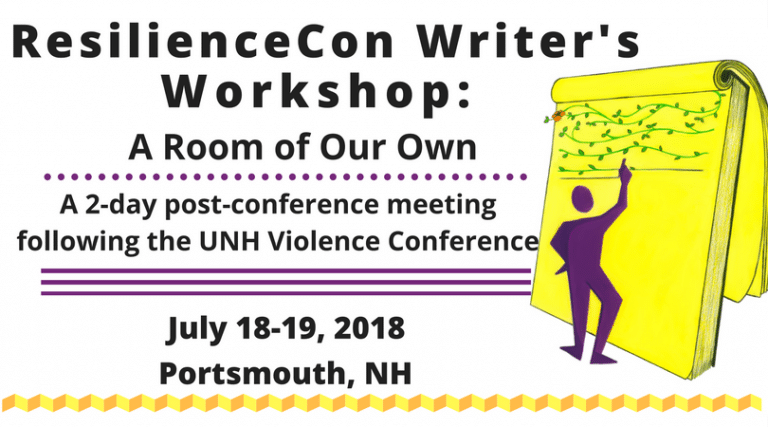
Thanks to all who attended the 2018 Workshop!
Check back for more information on the next workshop!
2018 Program Faculty

Sherry Hamby, Ph.D. is Director of the Life Paths Research Center and a Distinguished Research Professor of Psychology at the University of the South. Her writing experience includes authoring or co-authoring more than 200 scholarly articles and books on violence and resilience, leading to an h-index of 56 (56 publications that have been cited 56 or more times each), an i-10 index of 103 (papers with 10 or more citations), and over 20,000 total citations. She is also a published poet. She was founding editor (2010-2018) of the APA journal Psychology of Violence (Q1 in Family Studies and Criminology). She has served as editorial board member or reviewer for numerous journals and was formerly the Associate Editor for Statistics for Psychological Trauma prior to becoming editor of Psychology of Violence. Her grants have been funded by the U.S. Department of Justice, the Digital Trust Foundation, and numerous other agencies, and she has reviewed grant applications for numerous Federal and private agencies, nationally and internationally. As teacher and editor, she has mentored dozens of junior scholars in scientific writing. She has attended several professional fiction conferences and events, and has drawn from those experiences to develop this workshop for scientific writing. Her awards include the 2017 Award for Outstanding Contribution to the Science of Trauma Psychology from the Trauma Psychology Division of the American Psychological Association, and the lifetime achievement award from the National Register of Health Service Psychologists. Dr. Hamby has also been successful in disseminating her scientific work to a wider audience. In addition to a blog on Psychology Today, her work has appeared in the New York Times, Huffington Post, the Los Angeles Times, CBS News, National Public Radio, and hundreds of other media outlets. Her most recent book is Battered Women’s Protective Strategies: Stronger Than You Know (Oxford University Press, 2014). She is currently working on a book on resilience.

Victoria Banyard, Ph.D. is Professor of Psychology at the University of New Hampshire, with an affiliation in the Justice Studies and Women’s Studies programs, and co-founder of the Prevention Innovations Research Center. She is a former Senior Associate Editor of Child Abuse and Neglect and has served as special issue guest editor for five other journals, as well as serving as editorial board member or reviewer for numerous journals. She has authored or co-authored more than 100 scholarly articles and book chapters on bystander prevention, violence, and resilience, leading to an h-index of 48 (48 publications that have been cited at least 48 times each), totaling more than 7,000 citations. She has written multiple successful grants funded by the Centers for Disease Control and the National Institute of Justice, and was awarded a fellowship at the Office for Violence Against Women to help implement policy and practice implications of her research on bystander prevention. She is a Fellow of the American Psychological Association and has received numerous awards, including the Margaret M. Riggs Award for Distinguished Contributions to Psychology in New Hampshire. She works closely with undergraduate and graduate students and provides them with training in scientific writing. Her work has appeared in many national media outlets, including CNN, Huffington Post, and Salon. Her most recent book is Toward the Next Generation of Bystander Prevention of Sexual and Relationship Violence: Action Coils to Engage Communities (Springer, 2015).
Panel: What Makes a Good Pitch? What Reviewers, Editors, Funders, and Media Look For

Susan Dumais is the communications manager for the College of Liberal Arts (COLA) at the University of New Hampshire. She manages a Drupal website that includes over 40 departments, programs, and research and administrative units. She trains web editors and provides technical and advanced editing support; creates written and graphic content for the COLA site as well as for the College’s blog and social media accounts; and edits and writes about faculty and student research for the College’s online newsletter, The College Letter. She also writes and/or designs posters, programs, banners, brochures, signage and other collateral in support of the College. She earned an M.A. in Literature and a B.A. at the University of New Hampshire.

David Finkelhor, Ph.D. is the Director of the Crimes against Children Research Center, Co-Director of the Family Research Laboratory and Professor of Sociology at the University of New Hampshire. He has been studying the problems of child victimization, child maltreatment and family violence since 1977. He is well known for his conceptual and empirical work on the problem of child sexual abuse, reflected in publications such as Sourcebook on Child Sexual Abuse (Sage, 1986) and Nursery Crimes (Sage, 1988). He has also written about child homicide, missing and abducted children, children exposed to domestic and peer violence and other forms of family violence. In his recent work, he has tried to unify and integrate knowledge about all the diverse forms of child victimization in a field he has termed Developmental Victimology. He is editor and author of 11 books and over 150 journal articles and book chapters. He has received grants from the National Institute of Mental Health, the National Center on Child Abuse and Neglect, and the US Department of Justice, and a variety of other sources. In 1994, he was given the Distinguished Child Abuse Professional Award by the American Professional Society on the Abuse of Children and in 2004 he was given the Significant Achievement Award from the Association for the Treatment of Sexual Abusers.

Jane Stapleton, M.A., Executive Director of Practice at the University of New Hampshire Prevention Innovations Research Center. Jane’s current research and evaluation projects include training and technical assistance on strategic planning and assessment for the Campus Grants Program, Office on Violence Against Women, Department of Justice; evaluation technical assistance to New Hampshire Rape, Prevention and Education (RPE) grantees, funded by the Centers for Disease, Control and Prevention; and project director to develop a bystander intervention video game to prevent sexual assault on college campuses, funded by the National Institute of Justice. She collaborates with StopHazing and is particularly interested in the intersections and connections between hazing and sexual assault. She is currently working with the Phi Delta Theta Fraternity and Foundation to develop Phi Delt specific bystander intervention strategies. She is a lead developer and evaluator of the Know-Your-Power® Bystander Social Marketing Campaign and trains colleges, universities and community organizations how to facilitate Bringing in the Bystander ®. She is currently working to adapt bystander intervention prevention strategies to end sexual harassment in the workplace. She coordinates the National Campus Sexual and Relationship Violence and Stalking Prevention Consortium. She has provided direct services to survivors, developed, facilitated and evaluated prevention programs and directed campus-wide efforts (including policy development and systems’ advocacy) to end sexual and relationship violence and stalking. She teaches in the Women’s Studies Program at UNH. As an activist, administrator, policy maker, service provider and researcher she has worked in the field of ending sexual and relationship violence and stalking for 30 years.
Questions? Contact Elizabeth Taylor, Conference Director , lifepaths@lifepathsresearch.org
